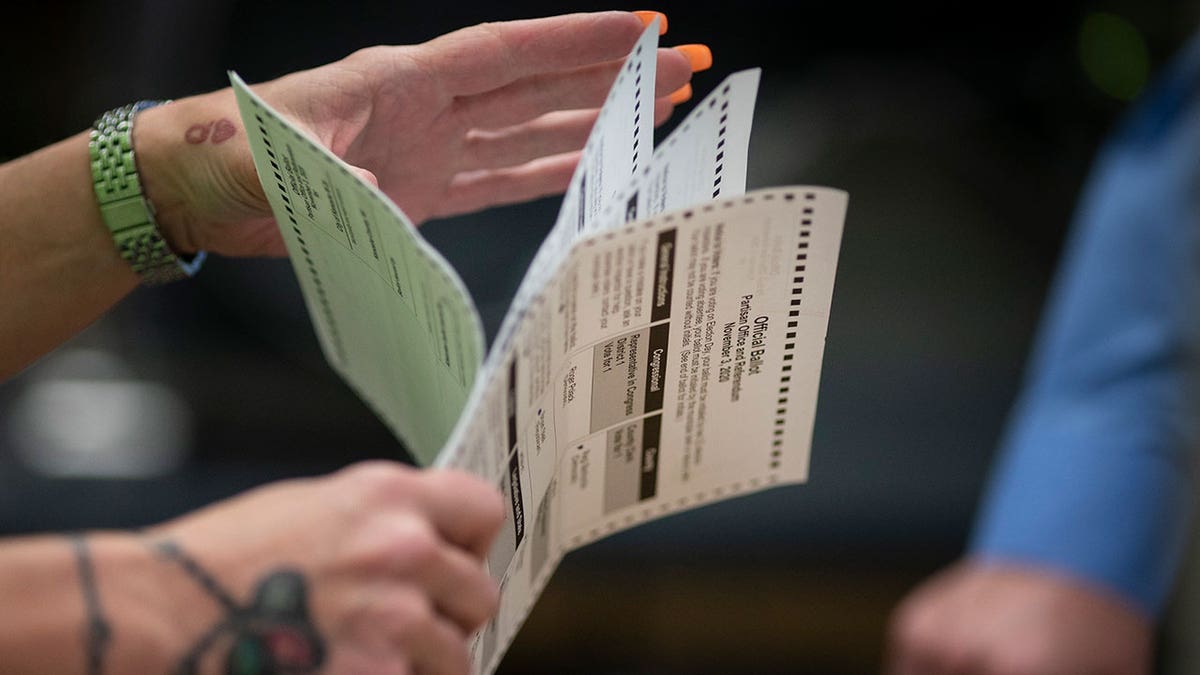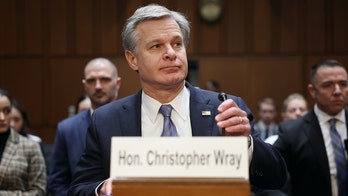Fox News Flash top headlines for December 12
Fox News Flash top headlines are here. Check out what's clicking on Foxnews.com.
- A bipartisan bill proposing a significant change in Wisconsin's congressional candidate selection process is set for its first public hearing.
- Final Five Voting would require voters to rank their top five candidates from all parties rather than choosing between the top Democratic and Republican contenders.
- The bill suggests placing all candidates for a U.S. House or Senate seat together on a primary ballot, with the top five advancing to the general election, regardless of party affiliation.
A bipartisan bill that would dramatically change how Wisconsin residents choose congressional candidates by asking them to rank their top choices instead of voting for one of two candidates is headed for its first public hearing.
The state Senate's election committee was set to take public comment on a proposal Tuesday that would implement a ranked choice system known as final five. Under that system, voters would rank their top five candidates from all parties rather than just the top Democratic and Republican contenders. The hearing is the first for the complicated plan that would drastically change in how Wisconsin voters pick their representatives in Washington.
"The aim of Final Five Voting is not to change who gets elected; it is designed to change the incentives of those who do get elected," the bill’s chief authors — Republican Reps. Ron Tusler and Tony Kurtz, Democratic Rep. Daniel Riemer, Republican Sen. Jesse James and Democratic Sen. Jeff Smith — said in a memo seeking co-sponsors. "Officials elected under Final Five Voting — having been elected by and held accountable to the general electorate — are freed up to deliver solutions that meet our country’s complex challenges."
TOP WI REPUBLICAN DECLARES END TO FINANCIAL NEGOTIATIONS WITH STATE UNIVERSITY
The bill would implement a form of ranked choice voting in which all candidates for a U.S. House or Senate seat would appear together on a primary ballot regardless of their party, with the top five finishers advancing to the general election. Right now Republicans and Democrats run on separate ballots in partisan primaries.

Poll workers sort out early and absentee ballots at the Kenosha Municipal building on Election Day in Kenosha, Wis., on Nov. 3, 2020. A bipartisan bill that would dramatically change how Wisconsin residents choose congressional candidates by asking them to rank their top choices instead of voting for one of two candidates is headed for its first public hearing. (AP Photo/Wong Maye-E, File)
Voters would rank the five primary winners in order of preference on general election ballots. If a candidate receives a majority of first-place votes, they win. If no one gets a majority, the candidate with the fewest votes is eliminated and anyone who had that person as their first choice instead has their vote go to their second ranked choice. That process continues until one candidate has a majority of votes. Right now candidates can win a seat without a majority.
WI REPUBLICAN PROSECUTOR PLANS APPEAL IN STATE ABORTION CASE
A bipartisan group of 21 lawmakers has signed onto the bill as co-sponsors.
Maine adopted a ranked choice system in 2016 for all federal elections and state primaries. Alaska went to a ranked choice system for state and federal races in 2020. No other state has adopted it, although three counties and 45 cities across the nation use it for local elections, according to FairVote. Voters in Nevada passed a ballot question last year to implement ranked choice; it must pass again in 2024 to take effect.
Advocates say a ranked choice system offers voters more choices and reduces negative campaigning since candidates need to appeal to as broad a swath of voters as possible to win second- and third-place marks. They also insist the system gives third-party and independent candidates a better chance.
Opponents say the system is difficult to understand and that the results would be difficult to count. They also argue that the approach equates to giving an elector multiple votes in the same election, flying in the face of the "one person, one vote" philosophy.
Wisconsin legislators have introduced the proposal in each of the last two legislative sessions, but it each time it went nowhere.
WISCONSIN GOP LEADER DOWNPLAYS PRESSURE TO IMPEACH NONPARTISAN ELECTIONS CZAR
This time around, Republican opponents are on the offensive, pushing a constitutional amendment that would outlaw ranked choice voting.
The state's election systems are already difficult to understand and ranked choice would make things even more complex, they argue. Multiple rounds of tabulation would slow the release of results and voters would be forced to guess at which candidates would be left standing after each elimination round, they added. Special interests could develop strategies to manipulate rankings and results, they warned.
"At a time when many Wisconsinites are asking the Legislature to simplify the mechanics of our election system, ranked-choice voting would further complicate it with calculations that dictate outcomes that are not intuitive to every voter," the Republicans who authored the amendment, Sen. Duey Stroebel and Reps. Ty Bodden, Chanz Green and Joy Goeben wrote in a co-sponsorship memo.
Britt Cudaback, a spokesperson for Democratic Gov. Tony Evers, didn’t immediately respond to a message inquiring about whether the governor supports ranked-choice voting.





